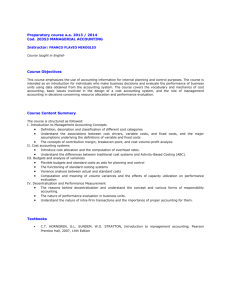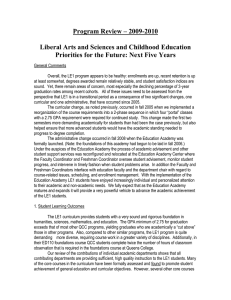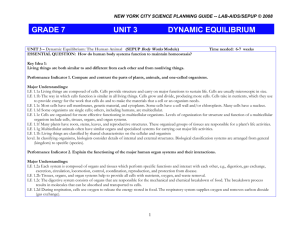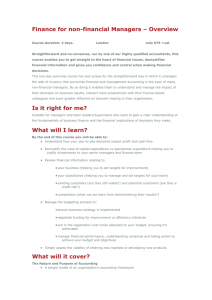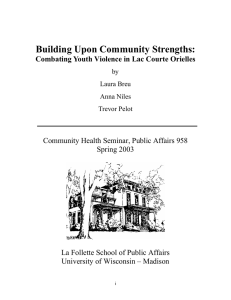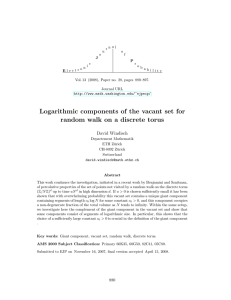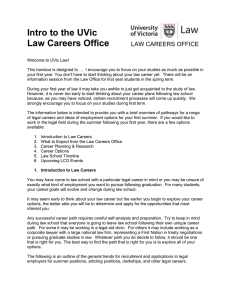Manage a Budget
advertisement
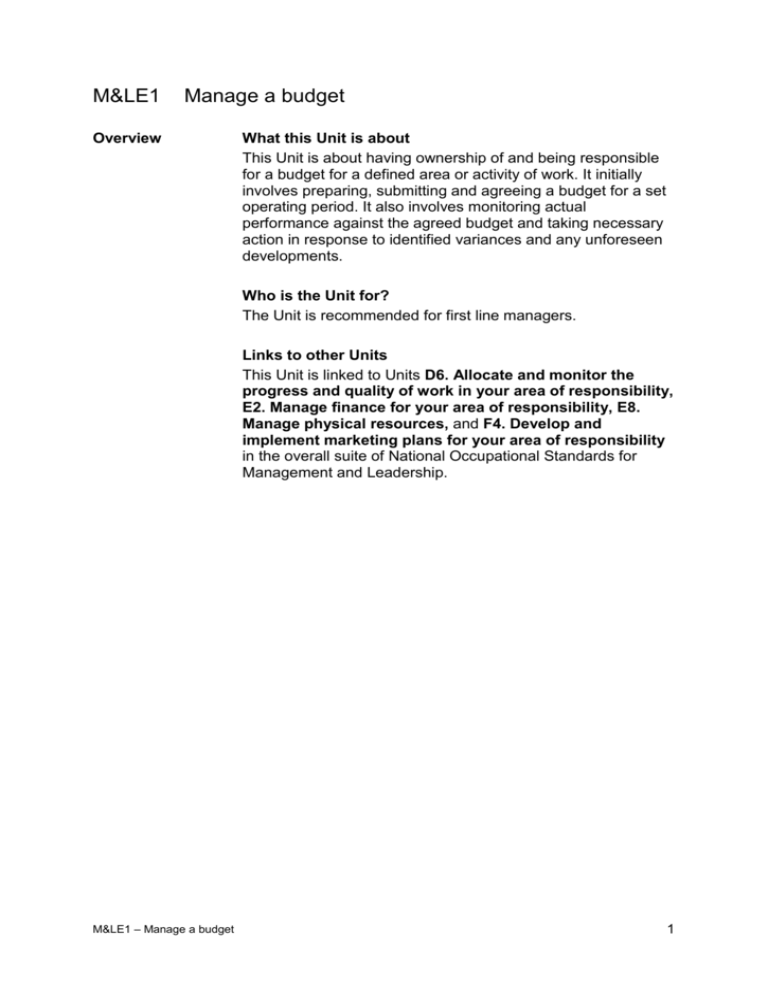
M&LE1 Manage a budget Overview What this Unit is about This Unit is about having ownership of and being responsible for a budget for a defined area or activity of work. It initially involves preparing, submitting and agreeing a budget for a set operating period. It also involves monitoring actual performance against the agreed budget and taking necessary action in response to identified variances and any unforeseen developments. Who is the Unit for? The Unit is recommended for first line managers. Links to other Units This Unit is linked to Units D6. Allocate and monitor the progress and quality of work in your area of responsibility, E2. Manage finance for your area of responsibility, E8. Manage physical resources, and F4. Develop and implement marketing plans for your area of responsibility in the overall suite of National Occupational Standards for Management and Leadership. M&LE1 – Manage a budget 1 M&LE1 Manage a budget Listed below are the main generic ‘skills’ that need to be applied in managing a budget. These skills are explicit/ implicit in the detailed content of the Unit and are listed here as additional information. Skills M&LE1 – Manage a budget Communicating Decision-making Monitoring Acting assertively Presenting information Reporting Learning Negotiating Consulting Information management Evaluating Contingency-planning Problem-solving 2 M&LE1 Manage a budget Performance Criteria You must be able to: M&LE1 – Manage a budget 1 Evaluate available information and consult with others to prepare a realistic budget for the respective area or activity of work. 2 Submit the proposed budget to the relevant people in the organisation for approval and to assist the overall financial planning process. 3 Discuss and, if appropriate, negotiate the proposed budget with the relevant people in the organisation and agree the final budget. 4 Use the agreed budget to actively monitor and control performance for the respective area or activity of work. 5 Identify the causes of any significant variances between what was budgeted and what actually happened and take prompt corrective action, obtaining agreement from the relevant people if required. 6 Propose revisions to the budget, if necessary, in response to variances and/or significant or unforeseen developments and discuss and agree the revisions with the relevant people in the organisation. 7 Provide ongoing information on performance against the budget to relevant people in your organisation. 8 Advise the relevant people as soon as possible if you have identified evidence of potentially fraudulent activities. 9 Gather information from implementation of the budget to assist in the preparation of future budgets. 3 M&LE1 Manage a budget Behaviours 1 You will exhibit the following behaviours: You present information clearly, concisely, accurately and in ways that promote understanding. 2 You act within the limits of your authority. 3 You show integrity, fairness and consistency in decisionmaking. 4 You say no to unreasonable requests. 5 You use communication styles that are appropriate to different people and situations. 6 You take and implement difficult and/or unpopular decisions, if necessary. 7 You respond quickly to crises and problems with a proposed course of action. M&LE1 – Manage a budget 4 M&LE1 Manage a budget Knowledge and Understanding You need to know and understand: General knowledge and understanding 1 The purposes of budgetary systems. 2 Where to get and how to evaluate the available information in order to be able to prepare a realistic budget. 3 The importance of spending time on and consulting with others in preparing a budget. 4 How to discuss, negotiate and confirm a budget with people who control the finance and the key factors that should be covered. 5 How to use a budget to actively monitor and control performance for a defined area or activity of work. 6 The main causes of variances and how to identify them. 7 What different types of corrective action which could be taken to address identified variances. 8 How unforeseen developments can affect a budget and how to deal with them. 9 The importance of agreeing revisions to the budget and communicating the changes. 10 The importance of providing regular information on performance against the budget to other people. 11 Types of fraudulent activities and how to identify them. 12 The importance of using the implementation of the budget to identify information and lessons for the preparation of future budgets. M&LE1 – Manage a budget 5 M&LE1 Manage a budget Knowledge and Understanding You need to know and understand: M&LE1 – Manage a budget Industry/sector specific knowledge and understanding 1 Factors, processes and trends that are likely to affect the setting of budgets in your industry/sector. 6 M&LE1 Manage a budget Knowledge and Understanding You need to know and understand: M&LE1 – Manage a budget Context specific knowledge and understanding 1 The area or activity that the budget is for. 2 The vision, objectives and operational plans for your area of responsibility. 3 The budgeting period(s) used in your organisation. 4 Organisational guidelines and procedures for the preparation and approval of budgets and for monitoring and reporting of performance against budgets and revising budgets. 5 The agreed budget, how it can be used and how much it can be changed without approval. 6 The limits of your authority. 7 Who needs information in your organisation about performance against your budget, what information they need, when they need it and in what format. 8 What to do and who to contact if you suspect fraud has been committed. 7 M&LE1 Manage a budget Evidence Requirements PC PC1 PC2 PC3 PC4 PC5 PC6 PC7 PC8 PC9 Knowledge and Understanding Industry Context General specific specific Documents, spreadsheet printouts and other records relating to a budget you have prepared and managed: documents, spreadsheet printouts and other records of past budgets, forecasts 1, 2 1, 2, 3, 11 1 1, 2, 3, 4, 6 of future activity, income/revenue and expenditure, costs and prices that you have used to prepare a draft budget draft budgets, papers to support your draft, and notes, minutes and other 1, 2, 3, 5, 6 1, 3, 4, 8, 9 1 1, 2, 3, 4, 5, 6 records of negotiations with appropriate managers to agree and finalise or to revise your budget, and copies of agreed budgets records of activity, income/revenue and/or expenditure, variance analyses and reports you have prepared on budget outturns, and any proposed actions in the 1, 2, 3, 4, 5, 6, 7 1, 5, 6, 7, 8, 10, 1, 3, 4, 5, 6, 7, 1 11 8 light of variances, evidence of fraudulent activity or management requirements to make budget changes personal statements (reflections on your use of information to construct a 1, 2, 4, 5, 6, 7, 1, 2, 3, 4, 5, 6, 2, 3, 4, 6, 7 1 budget, negotiate and obtain approval for it, monitor outturns and make any 8, 9, 10, 11, 12 7, 8 changes needed) Evidence of Performance Criteria: possible examples of evidence M&LE1 – Manage a budget Behaviours 8

